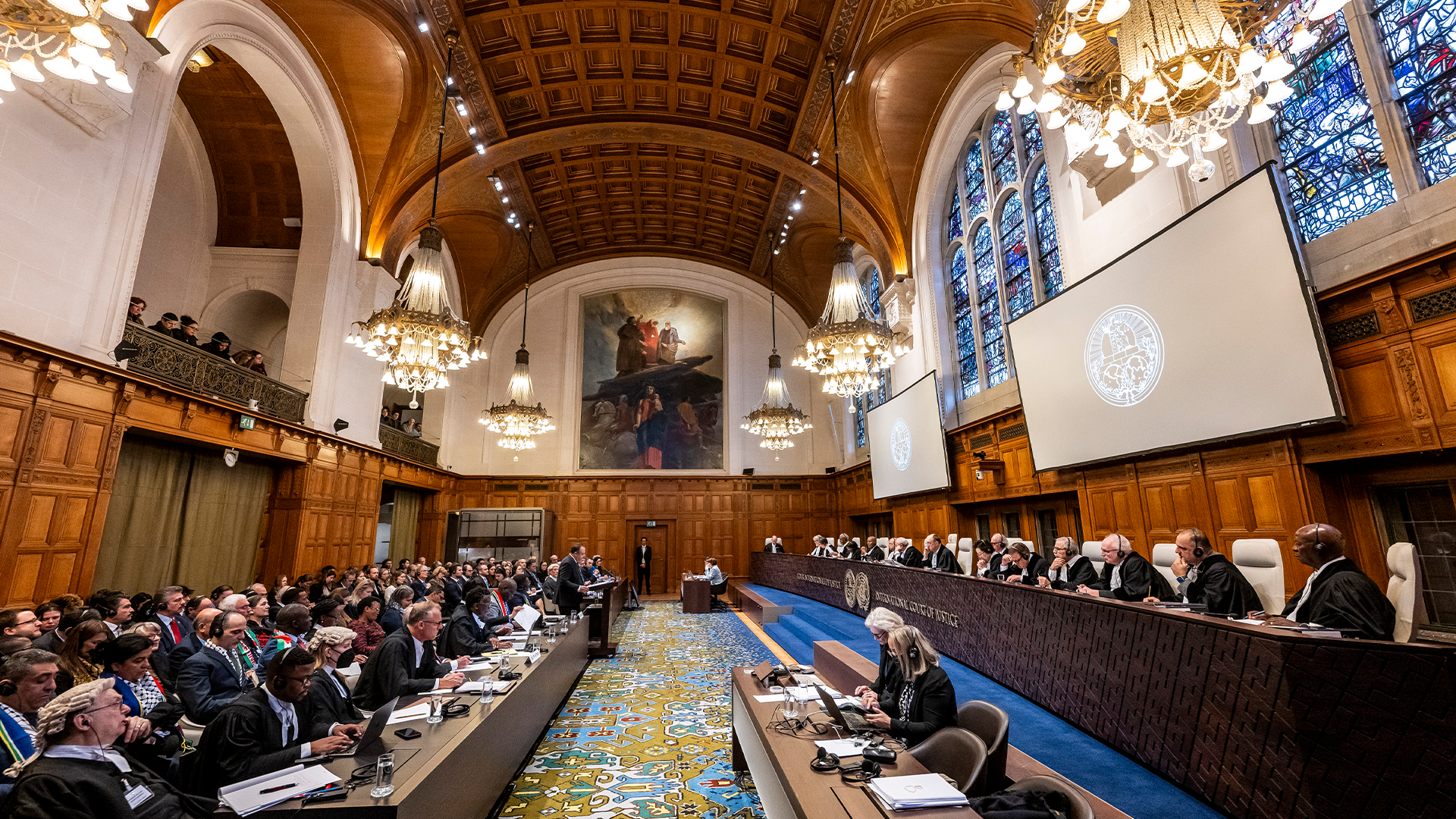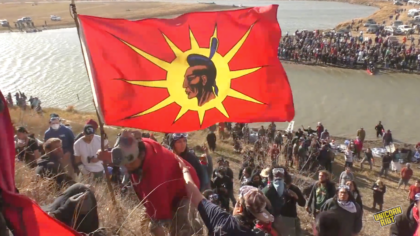Analysis: The Cause and Impact of South Africa’s ICJ Case Against Israel
This article is a analysis of South Africa’s ongoing genocide case against Israel at the ICJ. The views and opinions expressed don’t necessarily represent those of Unicorn Riot.
Durban, South Africa — On Dec. 29, 2023, South Africa made history by filing charges against Israel for “committing genocide in manifest violation of the Genocide Convention,” at the International Court of Justice. These charges were filed in response to Israel’s actions in the ongoing Israeli-Gaza war, which has so far killed over 35,000 Palestinians and displaced nearly all of Gaza’s 2-plus million residents.
Separately, after continued calls for the International Criminal Court (ICC) to investigate Israeli leaders for war crimes, on May 20 prosecutors with the ICC – a different entity than the ICJ – requested arrest warrants for the senior leaders of both Hamas and Israel.
The ICC warrants themselves are unlikely to have much impact on Hamas’ senior leadership as they are already limited on which countries they can travel to. But while Israel, nor the U.S. are signatories to the ICC, their European Union counterparts are, and would therefore be legally required to arrest the Israeli officials named in the warrants if they were to ever visit those countries.
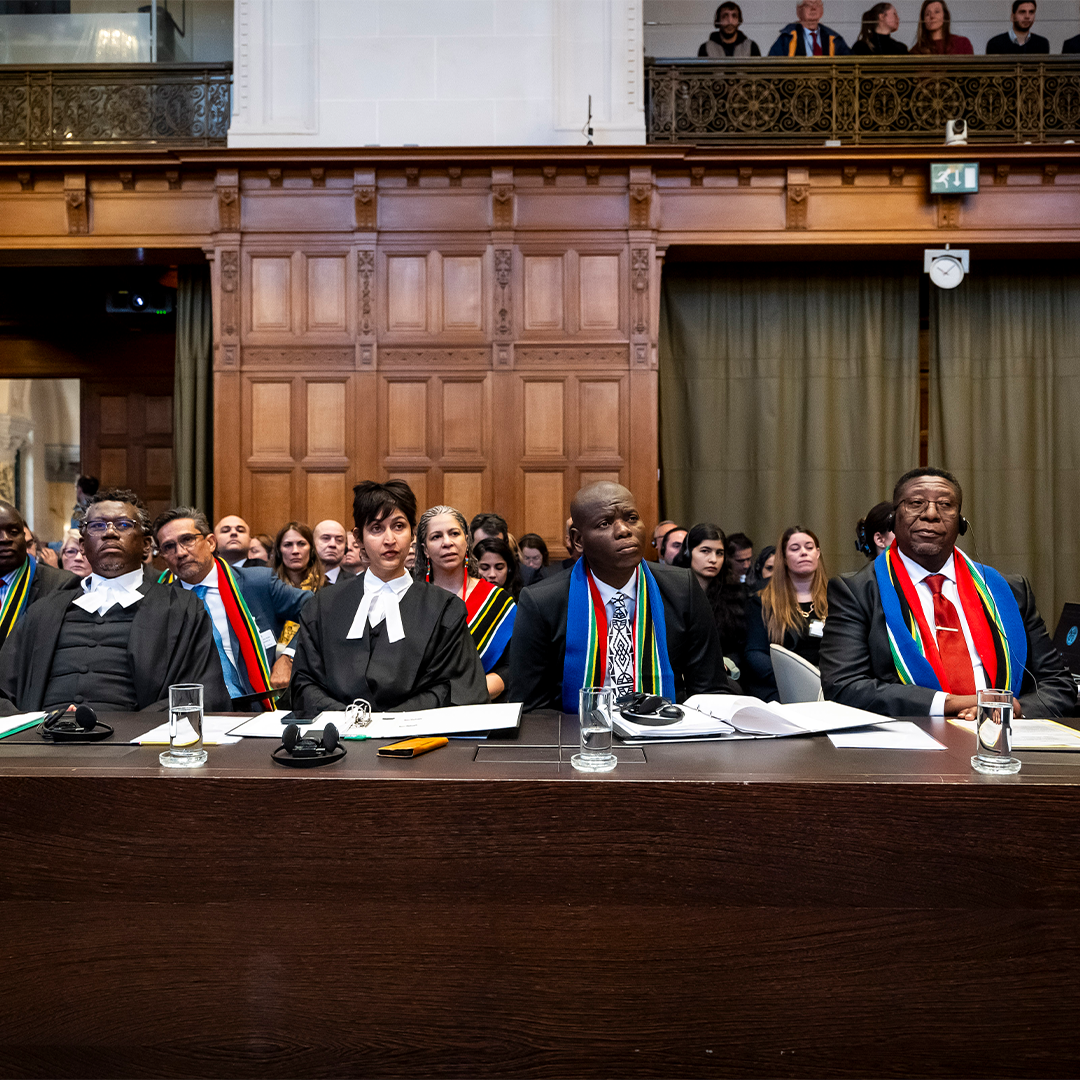
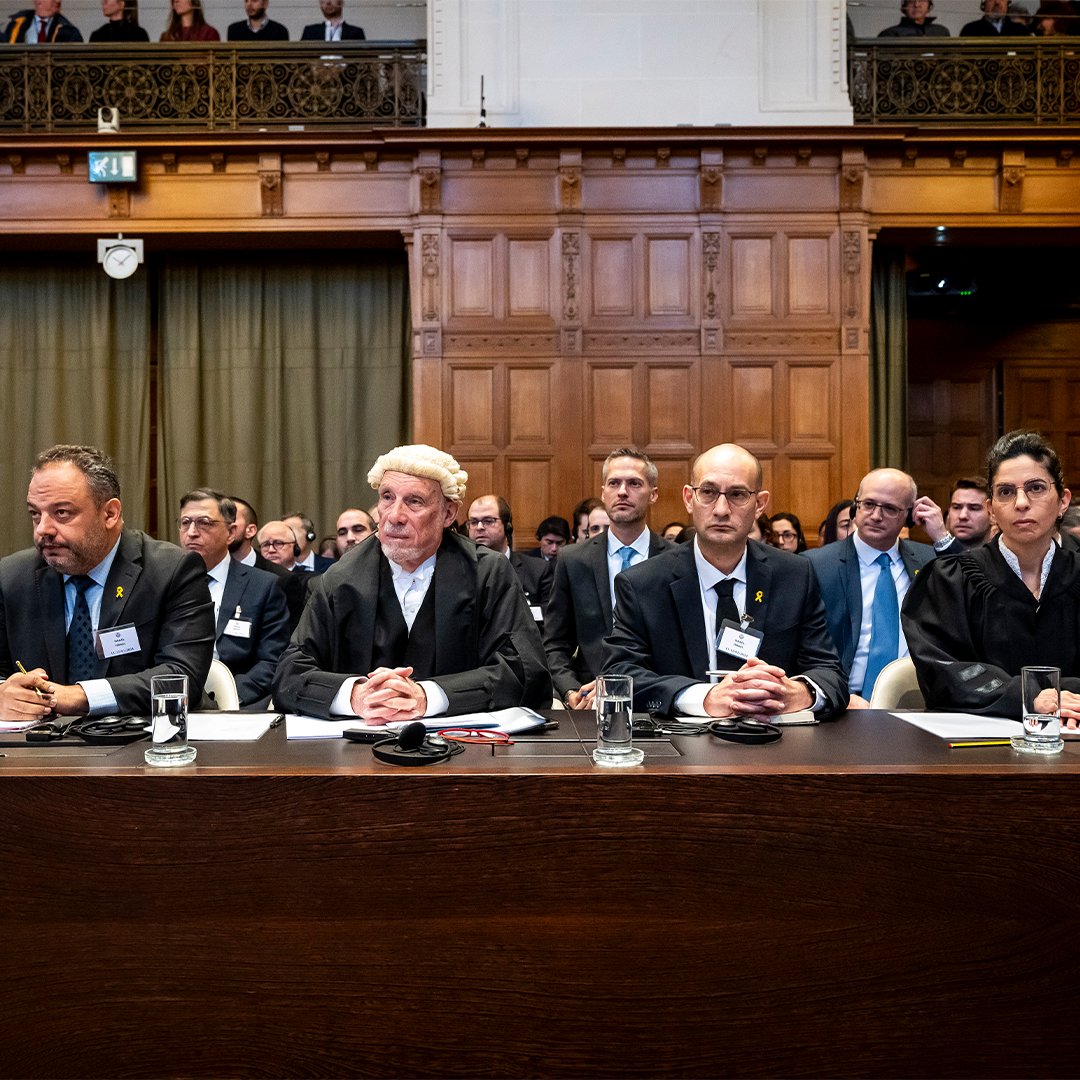
Thirty three countries have so far come out in support of South Africa’s ICJ case, while twelve countries, mostly in the west, are opposed. Israel has responded by calling the charges “baseless” and accusing South Africa of being the “legal arm of Hamas.” The U.S. echoed this sentiment as White House national security spokesman John Kirby called the case “meritless, counterproductive, and “completely without any basis in fact whatsoever.”
With the case likely to take years to resolve, South Africa has also requested a series of provisional measures of protections intended to compel Israel to immediately halt its genocidal campaign in Gaza and to abide by international laws in protecting civilians and facilitating the unimpeded flow of humanitarian aid into the Gaza Strip.
| Requested measures of protection | Court Approved? |
| Prevent Genocide and desist from killing, injuring, destroying life and preventing births | Yes |
| Desist from incitement, and punish acts of and encouragement to genocide | Yes |
| Enable the provision of basic services and humanitarian assistance | Yes |
| Prevent the destruction of and ensure the preservation of evidence | Yes |
| Submit ongoing reports to the Court on measures taken | Yes |
| Suspension of military operations | No |
| Refrain from aggravating the situation | No |
| Immediately halt its military offensive, and any other action in the Rafah Governorate | Yes |
The court has approved most of these requests, stopping short of ordering Israel to cease all military operations in Gaza. However, on May 24 the ICJ would approve South Africa’s most recent request — to order Israel to cease military operations within Rafah. Though Israel is legally required to abide by these orders as a UN member, it has generally responded to them with open hostility and defiance and has called the United Nations a “terror organization.”
In a warped interpretation of the court’s clear instructions for Israel to pull out of Rafah, Israel maintains that its current military operation in Rafah will continue and hasn’t violated any court order since the full language of the order states that it must cease military operations in Rafah that “may inflict on the Palestinian group in Gaza conditions of life that could bring about its physical destruction in whole or in part.”
Israel argues that the operation in Rafah is not designed to inflict the physical destruction of Palestinians and is only targeting Hamas and therefore they are following the courts orders. However, the documented situation on the ground paints a vastly different picture, as Palestinian civilians, public infrastructure and humanitarian convoys are routinely targeted and destroyed by the Israeli military.
So long as it enjoys the protection of the U.S., any attempts to enforce penalties on Israel within the UN will likely fail as the U.S. retains a permanent seat on the UN Security Council. This guarantees that any potential UN resolution aimed at punishing Israel will be vetoed by the U.S. — as it has done many times in the past.
Still, the case is causing severe damage to Israel’s already tarnished international standing, especially amongst its traditional allies in the EU. On Feb. 6, the Belgians announced that they were “temporarily suspending two separate ammunition export licenses to Israel” in relation to the ICJ case. And on May 23, Ireland, Spain and Norway became the latest in a growing list of EU countries to formally recognize the state of Palestine.
On the surface it appears odd that a country as far away as South Africa would be spearheading such a massive and legally disruptive case in defense of a Palestinian nation some 6,000 miles away. But by dissecting the unique, special and complex nature of the Israeli-South African relationship we can begin to understand how and why this came to be.
Israel-South Africa Relations: A Long and Complicated Affair
While the modern South African and Israeli governments have long been political enemies, their current antagonistic relationship was not always the norm. In fact, beginning at the start of Israel’s creation in 1948, all the way up until the end of the Cold War, South Africa served as one of Israel’s strongest and most important allies, sharing billions of dollars worth of economic and military resources. At the same time, since the 1960s virtually all major formations within South Africa’s political left scene have opposed Zionism and generally supported the Palestinians.
The complex and volatile relationship between Israel and South Africa goes back decades to a time where both were trying to stand on their own in the aftermath of British colonization. After gaining said independence from the British, both countries went on to enact and violently enforce segregationist policies for the benefit of one ethnic group over all others. This led to both countries becoming increasingly isolated from the international community and facing a growing wide range of opposition both within and outside of their borders.
This shared experience of political isolation contributed to an elevated sense of paranoia as the leaders of both nations suffered from a social condition known as ‘siege mentality’ — a term derived from warfare in which a defending army is surrounded by enemies on all sides.
South Africa also maintains the largest population of Jews on the continent of Africa – some of whom have made very significant contributions towards the state of Israel and played an instrumental role in bridging the gap between the two countries.
Of course not all South African Jews support the genocidal actions of the Israeli state as there were many who criticized Israel and supported the Palestinian right to nationhood. At the same time there were also a number of Israeli Jews who were highly critical of South African Apartheid – contributing towards Israel co-signing a UN resolution condemning the South African government in 1962.
It was during this time that many in the anti-apartheid movement were beginning to draw connections between the racial oppression of non-whites in South Africa and the oppression of Palestinians by Zionists in their own lands. Even the man who is widely regarded as the “architect of apartheid,” Former South African Prime Minister Hendrik Verwoerd agreed with the comparison. In a barbed response to Israel’s criticism of South Africa he stated bluntly:
“The Jews took Israel from the Arabs after the Arabs had lived there for a thousand years. Israel, like South Africa, is an apartheid state.”
Hendrik Verwoerd
Many within South Africa’s then-ruling National Party were deeply antisemitic and thus shared a mutual distrust of Israel. Despite these reservations and public war of words, behind the scenes both were steadily being pulled closer together due to their shared experience of international isolation and their intensifying battles against growing left-wing militant opposition. They would therefore become critical allies in the proxy wars of the Cold War, serving as the proxies for the Americans in their war against the Soviets, and theirs.
This seemingly unlikely pairing is one that was thus born out of strategic necessity, and by the 1970s it had become firmly cemented. The two were so close that at one point they were regularly exchanging highly sensitive military resources and information — this included cooperation on the development of nuclear weapons for both countries. (To this day the U.S. government refuses to acknowledge Israel has a nuclear arsenal.)
However, due to increasing international pressure from the anti-apartheid movement, the U.S. was forced to reverse course and imposed economic sanctions on South Africa in 1986. This left Israel as the only major power to still maintain a close relationship with South Africa. With increased economic pressure from the U.S., Israel eventually fell in line and joined the sanctions against South Africa.
Shortly after, the South African government was forced to enter into negotiations with their declared enemies in the African National Congress to facilitate the peaceful transition of power.
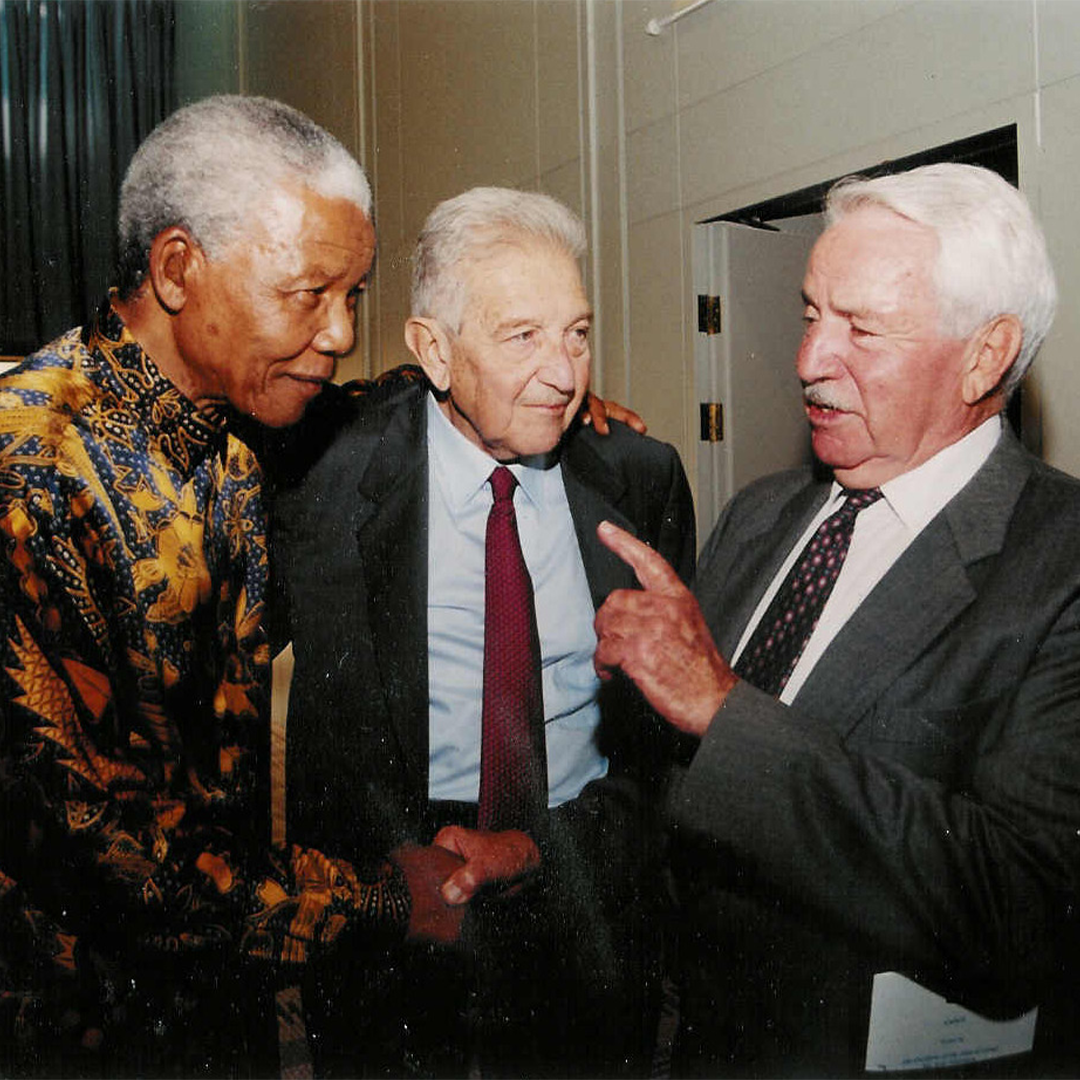
With the ANC gaining control of the South African government in the 1994 elections, relations between South Africa and Israel would only get worse. The ANC, a major South African left-wing political party, had long maintained close relationship with the Palestinian Liberation Organization and Israel was long known to be one of the apartheid’s strongest allies.
A rapprochement was attempted after former South African President Nelson Mandela visited Israel in 1999. However, Israel’s continued Iand seizures in the occupied Palestinian West Bank, the construction of the Israeli West Bank barrier and the escalating violence there, would ultimately drive them further apart.
The steadily declining relationship reached its lowest point when Israel launched its ground invasion of Gaza in late 2023.
Diplomatic embassies in both countries have since closed as South Africa continues its push in the ICJ to formally charge Israel with war crimes.
How the Case is Affecting South Africa-Israel Relations
Though the average South African appears to have little to no reference of what’s happening in Gaza, South Africa remains a relatively strong bastion of support for the Palestinian cause. Much of this support comes from the ANC and its associated organizations, however significant portions of the country’s Muslim population have also shown mass public support for Palestine, often dominating the composition of pro-Palestine rallies in the country.
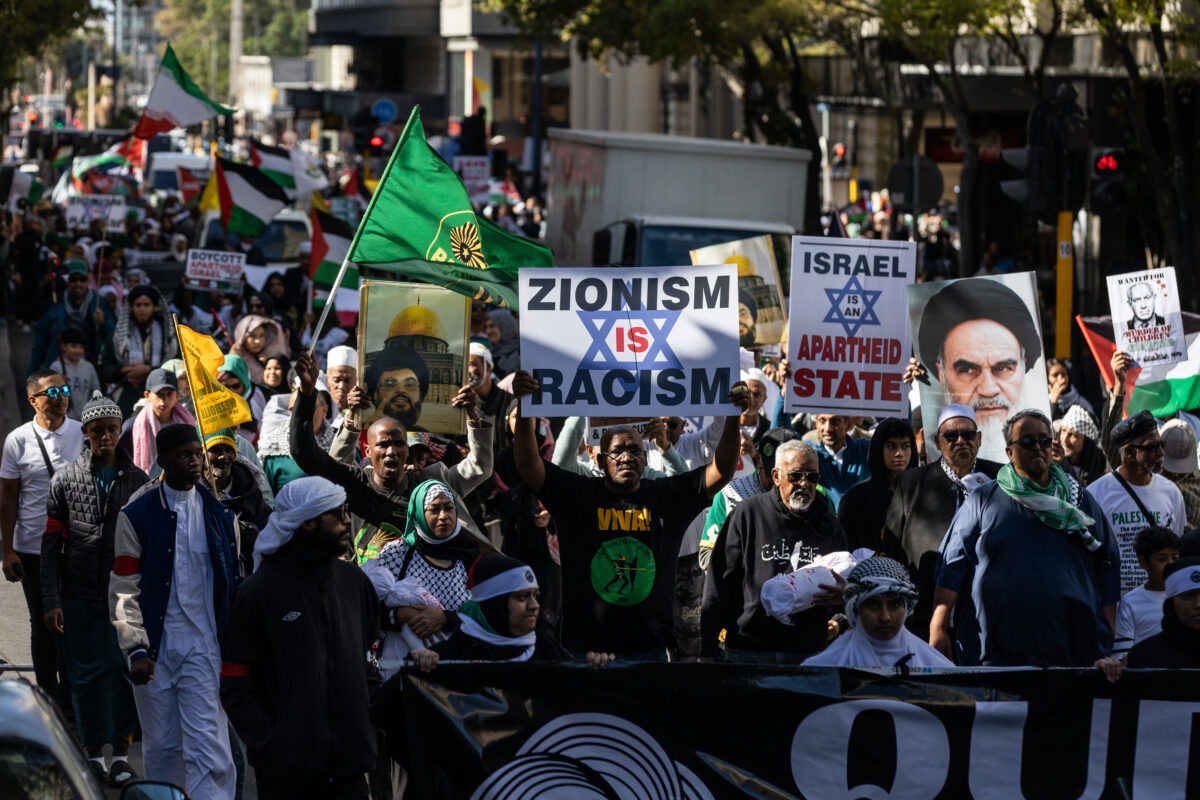
Though the ANC’s more right-leaning political rival in the Democratic Alliance (DA) have generally taken a pro-Israel stance, this position has started to shift to a more neutral position in recent times out of fear for alienating Muslim voters, which many see as a crucial vote ahead of South Africa’s looming general elections.
Rather than clarifying its position on the charges themselves however, the DA has instead chosen to focus on framing South Africa’s ICJ case against Israel as an ANC attempt to distract from their own problems at home. As explained earlier, the ANC has a long history of supporting the Palestinian liberationist cause and thus its recent actions against Israel at the ICJ shouldn’t be all that surprising. Still, the ICJ lawsuit can do nothing but help the ANC’s reputation amongst Muslim voters.
And while popular opinion in South Africa generally favors the pro-Palestine position, not all are on board. In particular, a significant, but unknown number, of South African Jews have been reported serving in various IDF units since October 2023. This prompted the Minister of International Relations and Cooperation of South Africa, Naledi Pandor, to declare that any South African citizen who went to fight for Israel would be arrested upon their return. Not all South African Jews support Israel’s actions, as there are a number who have publicly spoken out against Zionism.
Effects on Israel
While it’s difficult to gauge the response from ordinary Israelis, the response from the Israeli government has been clear: since being ordered to prevent the full-scale destruction of Gaza, it has instead opted to intensify said military activity.
Even if the ICJ ultimately rules in South Africa’s favor, then its unlikely to bring about a halt to Israel’s genocidal campaign. Even worse, it may push Israel even further into the extreme right as its leadership sinks into the abyss of siege mentality.
Still such a ruling would not be without significant consequences as most western European nations would be obliged to end their financial and military support — and perhaps more importantly impose economic sanctions. Israel will likely be able to weather such blows from the Europeans assuming they continue to receive assistance from their main supporter in the Americans. But such a charge levied by the highest court in the world will still make it very difficult for the U.S. to continue justifying its “ironclad” partnership with Israel.
Remember that the U.S. didn’t initially want to end its relationship with South African Apartheid, but the continued embarrassment on the world stage ultimately forced them to do so — the same is possible in regards to their relationship with Israel.
Indeed if Israel continues down their current path, then it ultimately may find itself in the same position as their old South African allies — a pariah state surrounded by enemies and under heavy U.S. sanctions.
It’s conceivable therefore that the single most important factor in changing Israel’s behavior will be the prospect of U.S. sanctions. It was U.S. sanctions that forced South Africa to the negotiating table in the late 1980s and it could possibly force the Israelis to do the same today. Of course, such a prospect is only possible if international and domestic pressure continues to grow on the U.S. to do this. This is perhaps ultimately what the ICJ case is really trying to accomplish; at the very least it can do nothing but help.
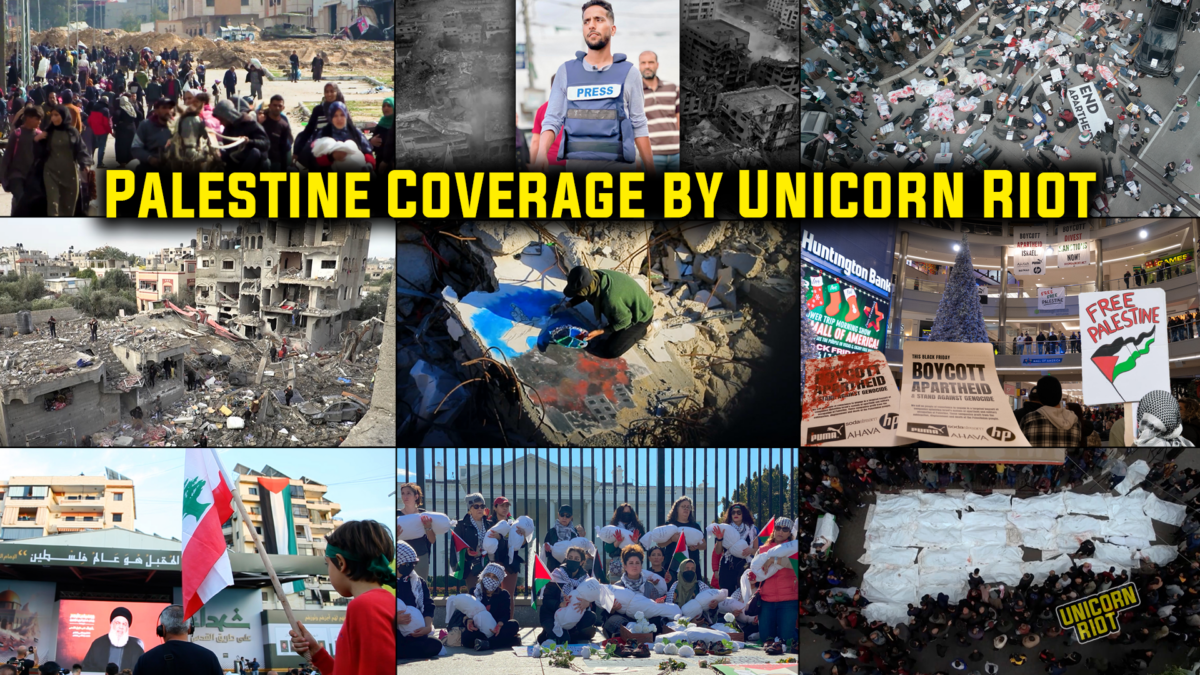
Follow us on X (aka Twitter), Facebook, YouTube, Vimeo, Instagram, Mastodon, Threads, BlueSky and Patreon.
Please consider a tax-deductible donation to help sustain our horizontally-organized, non-profit media organization:

